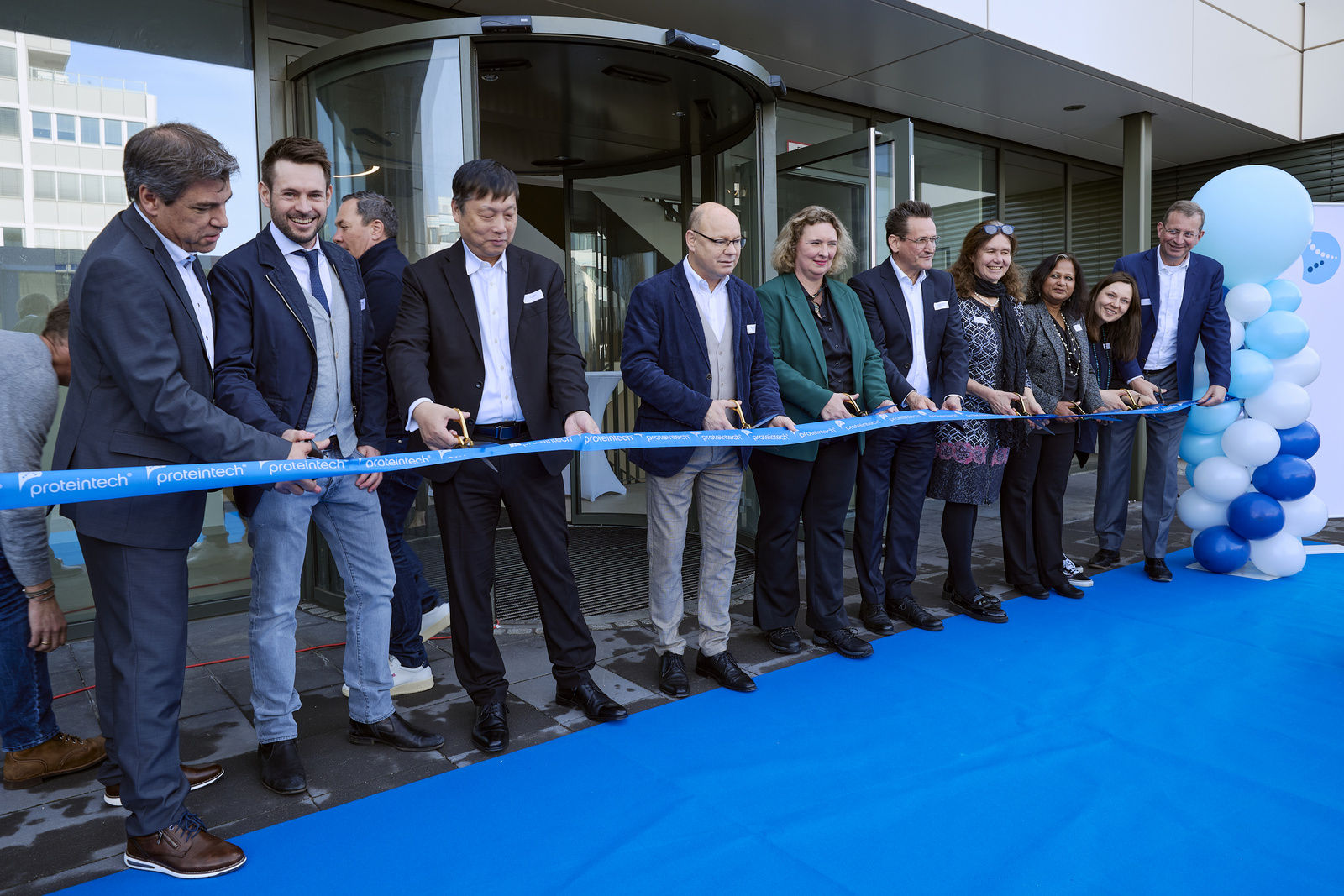- Startseite -
- Digital Bavaria -
- Blog #bytevaria - Bavaria’s High-Tech Agenda – investments in the future
Bavaria’s High-Tech Agenda – investments in the future
Artificial intelligence, robotics and digitisation – these are just three of the many keywords that are constantly being mentioned when it comes to the future of the high-tech industry in Bavaria. With Bavaria’s High-Tech Agenda, the Bavarian State Government is specifically promoting the areas of artificial intelligence and SuperTech. The goal: Not only to get Bavaria sustainably fit for the future, but also to deliberately expand its leading position as a tech hub. We shed light on what exactly Bavaria’s High-Tech Agenda consists of, what measures are being taken and what investments are being made.
What is Bavaria’s High-Tech Agenda?
Bavaria’s Minister President Markus Söder presented Bavaria’s so-called High-Tech Agenda to the state parliament as early as the end of 2019. This action plan is intended to consolidate and expand the technology offensive already under way in Bavaria. “We are igniting a research turbo, so Bavaria will still be able to play in the Champions League in 10 years' time,” said Söder. Artificial intelligence in particular is the key to the future. It is therefore important for Bavaria not to rest on its laurels at the top of this field. Instead, major steps are to be taken to strengthen the location for high-tech companies, start-ups and research in this area.
The four pillars of Bavaria’s High-Tech Agenda
Bavaria’s High-Tech Agenda has four focus areas in total that are funded with 2 billion euros. The four pillars are:
- Driving forward the artificial intelligence and SuperTech programme (600 million euros)
- Reorganising and expanding programmes for universities and mobile communication networks in Bavaria (600 million euros)
- Large-scale reform of universities (400 million euros)
- Sustainable SME offensive for the Bavarian economy with a focus on digital, start-up and automobile funds (400 million euros)
The super technology area mainly comprises quantum technology, aerospace and CleanTech applications. In detail, 1,000 new professorial positions are to be created by 2023 with the investments, as well as 10,000 new study places at Bavarian universities and colleges.
Bavaria is relying on the best scientists in the field of digitisation, AI and SuperTech
One clear focus of Bavaria’s High-Tech Agenda is to promote research and teaching in order to expand its top Tech-Hub status already shown in the Deloitte study. More than 20 top-class research centres are therefore to be funded. The aim is to bring the best scientists and users to Bavaria in cooperation with Bavarian universities such as TU Munich or FAU Erlangen-Nuremberg. Close networking with the local economy ensures that the results and innovations are applied immediately.
In the course of this, rural areas in particular are to be equipped with top-class research centres:

Furthermore, the area of data science at the Julius-Maximilians-Universität Würzburg, the future Tech Hub at the Technische Hochschule Nuremberg, the area of digital health at the Friedrich-Alexander-Universität Erlangen-Nuremberg (FAU) and the area of AI & mobility at the Technische Hochschule Ingolstadt (THI) will be strengthened in a focused manner.
Munich as the world’s leading centre for artificial intelligence
The state capital is assigned a special role in Bavaria’s High-Tech Agenda. Together with the Ludwig-Maximilian-University Munich (LMU) and the Technical University of Munich (TU) as well as the Fraunhofer Institute, research and development focus centres are being strengthened in and around Munich. The initiative benefits existing institutions such as:
- Munich School of Robotics and Machine Intelligence
- Fraunhofer Institute for Applied and Integrated Security
- Fraunhofer Institute for Cognitive Systems
In addition, the Ellis Institute (European Lab for Learning & Intelligent Systems) will be located in Munich. Together with the yet to be founded “AI Mission Institute” in Munich as well as the strong networks in the metropolitan region and beyond its borders, a lively start-up scene and a world-class AI innovation region will be established. “The state government’s plans are a strong and groundbreaking signal, at exactly the right time,” says Thomas F. Hofmann, President of the TU Munich.
Digitisation support programme in Bavaria benefits from the High-Tech Agenda
Bavaria’s High-Tech Agenda also sustainably strengthens the support programmes for digitisation already under way and thus digital research and development in Bavaria. Especially joint projects that promote research and application in industry will continue to benefit. Cooperation between commercial enterprises and research institutions as well as start-ups are being specifically promoted. In particular, innovations and new products in the AI and so-called SuperTech areas should flourish. The digitisation funding programme is primarily aimed at the application areas of information and communication technology (ICT) and electronic systems in Bavaria.
Update: Hightech Agenda Plus
The planned Hightech Agenda will be advanced with an additional 900 million euros in 2021 and 2022. The focus of these Hightech Agenda Plus measures is the faster allocation of professorships and the retention of existing positions at universities in the Free State, especially in the areas of aerospace, IT, artificial intelligence, CleanTech and hydrogen. In addition, further clusters for quantum technology and life sciences are to be created.

How a passion can transform into a successful business

Chicago/Planegg-Martinsried: the US-based Proteintech Group triples the size of its site in Bavaria – with a key focus on research & development, production and logistics


![[Translate to English:]](https://ik.imagekit.io/sgliwi1izsz/media/images/team_2021/mitarbeiter/Hr.Julian.Hechler_klein_V1.jpg?tr=w-1024 1024w, https://ik.imagekit.io/sgliwi1izsz/media/images/team_2021/mitarbeiter/Hr.Julian.Hechler_klein_V1.jpg?tr=w-1280 1280w, https://ik.imagekit.io/sgliwi1izsz/media/images/team_2021/mitarbeiter/Hr.Julian.Hechler_klein_V1.jpg?tr=w-1536 1536w, https://ik.imagekit.io/sgliwi1izsz/media/images/team_2021/mitarbeiter/Hr.Julian.Hechler_klein_V1.jpg?tr=w-1920 1920w)